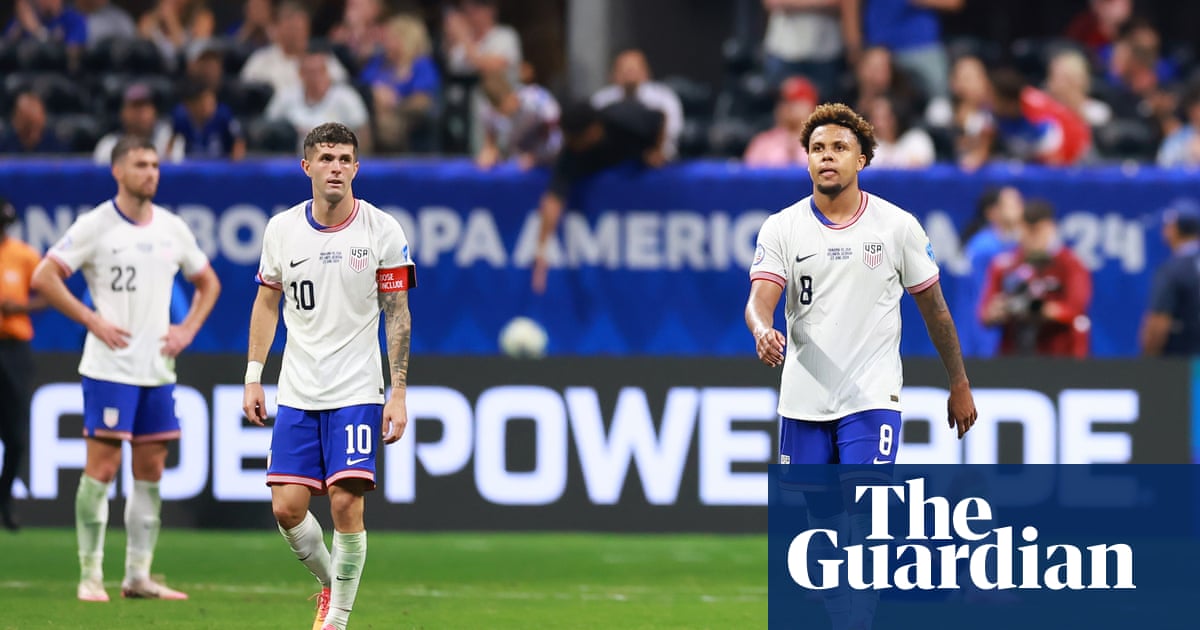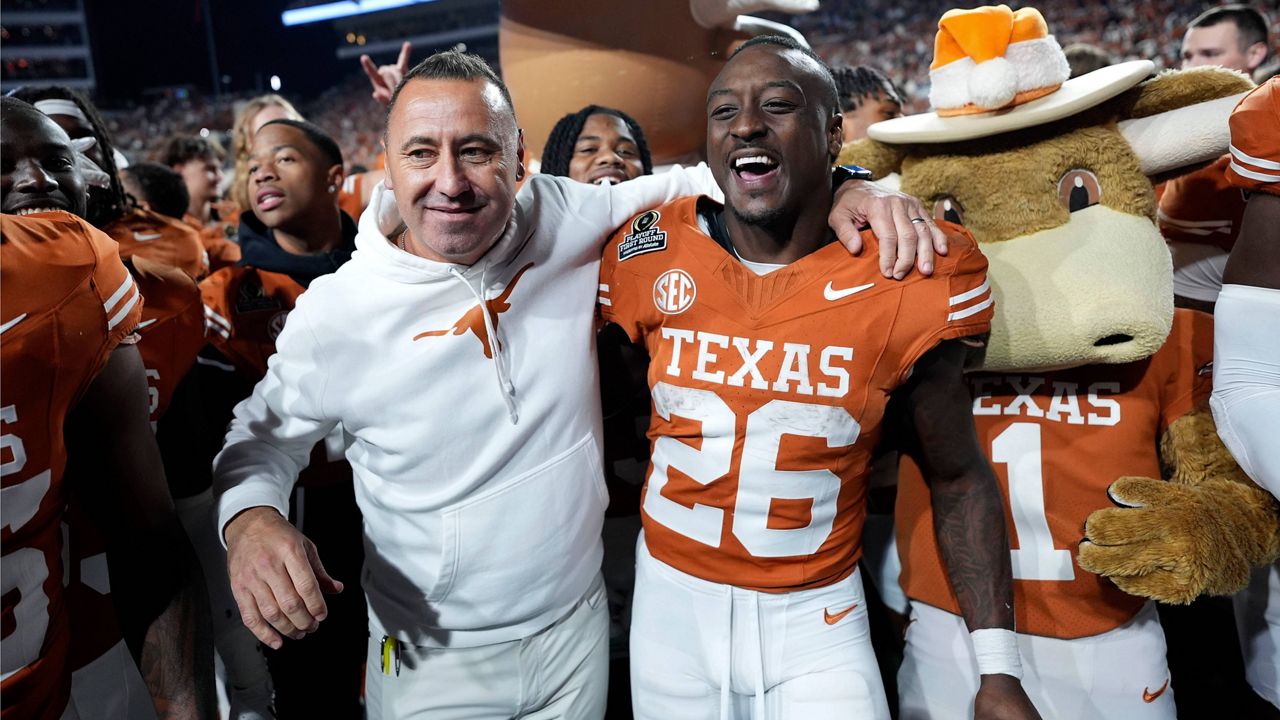World
Recent USMNT managers have promised the world and forgotten the basics

For the US men’s national team, it’s been an era of big promises and underwhelming results.
Jürgen Klinsmann started the trend when he took over the team in 2011, assuring fans that no longer would the US be the hardscrabble group that would occasionally but not consistently get results against the world’s elite. Rather, they would be more proactive, more cultured and entertaining. A revamped youth system would ensure a constant pipeline of talent – talent that would be good enough to play overseas. And those players would be used to the pressure that comes with higher expectations, having proved their worth in top European leagues.
“We’re still in the phase of piecing it together,” Klinsmann told Fifa.com in 2015, after his contract was extended and his roles expanded to include being technical director for the entire men’s program. “It’s likely to take years.”
His successor, Gregg Berhalter, was even more direct. He began his first camp with the stated goal of “changing the way the world views American soccer.” He oversaw the most youth-heavy roster turnover we’re ever likely to see from a national team, resulting in the US being the second-youngest squad to compete at the 2022 World Cup. He preached and embodied a previously unseen level of tactical flexibility, changing a possession-first style to a more direct one as World Cup qualification progressed. Berhalter promised that the men’s team would a wide menu of approaches for any given opponent.
“The idea is it’s a fluid style that the players are intent on breaking lines, playing through the opponent and creating goal-scoring opportunities.,” Berhalter said in his introductory press conference. “I think to execute it at a really high level does take some time, but it’s based on simple principles.”
The Klinsmann years have passed, and Berhalter has long since taken his allotment of “some time.” Between those two, the US have been led by what the politics world may call a “change candidate” for most of the last 13 years. In hiring successive revolutionaries, US Soccer tacitly endorsed the idea that foundational changes were needed at the pinnacle of the men’s program.
This summer, we saw the fruits of their labor: A disappointing group stage exit from the Copa América for the senior squad; a U-23 campaign at the Olympics that was a mixed bag at best, ending with a decisive 4-0 loss to Morocco in the quarter-finals.
There weren’t many mitigating factors for either campaign. The US certainly missed injured fullback Sergiño Dest at Copa América, and we now know that back problems plagued Tyler Adams. But it would be shortsighted to pin the underperformance on those factors alone.
Likewise, there were a couple of strange snubs from the Olympic roster (hello, Diego Luna), but it’s not as if the tournament turned on the performance of one player. As in other competitions, the US were dominant against weaker opposition and then comprehensively beaten by teams with comparable or greater talent.
The summer of 2024 was supposed to be when the lofty promises of change and progress started to yield results – the last chance to do so in a multi-week international competition before the US hosts the World Cup along with Mexico and Canada in 2026. The youth system had delivered, with Berhalter able to name a starting XI featuring players exclusively plying their trade in Europe’s five most prominent leagues. And those players were all at – or near – their primes. It should have been a galvanizing moment for the sport before a home World Cup.
Instead, the US faltered at another tournament, they have a head coach vacancy and the Olympic journey is over. And so this new era begins not with answers but a series of questions: Has American soccer changed? Can this team be what the previous eras wanted? What has been gained in pursuit of this goal? And perhaps more importantly: what has been lost?
It’s not as though the pre-revolution side were incapable of getting landmark results. If anything, they did so more regularly than any team since. Klinsmann’s predecessor, Bob Bradley, engineered a victory over Spain en route to the 2009 Confederations Cup final, and came within an extra time goal of a quarter-final spot at the next year’s World Cup, producing perhaps the single most viral USMNT moment along the way with Landon Donovan’s tournament-saving goal against Algeria. Before Bradley, Bruce Arena’s first stint included the best World Cup finish in the modern era in 2002, a fourth-place finish at the 2000 Olympics (overseen by Clive Charles), and a long-awaited ascent to become Mexico’s equals within Concacaf.
after newsletter promotion
The US had an identity during those eras: A hardscrabble group of players, with a few gems like Donovan, Claudio Reyna and Tab Ramos who raised the level, and a group spirit that elevated things further. Arena was fond of saying throughout both of his tenures that he was “confident in the ability of the American player” – a sentiment that showed up in innumerable ways as the team fought for results. The games themselves might not always have been pretty, and occasionally the US fell flat in big moments (see: the 2006 World Cup). But there was no mistaking what the team was about, or how it intended to go about its business.
With that context, it feels notable that in both of this year’s tournaments, the US were undone by countries with a record of punching above their weight, of executing on a defined national identity. Panama’s well-known direct and physical style set the terms of the encounter at the Copa América. Morocco sent many of their best players to the Olympics and played much the same way it did when the country became the darlings of the 2022 World Cup: Solid defending, pace on the counterattack, and a knack for the big moment.
“I think five years is a long time, and there’s been a lot of building blocks that have been put in place,” US Soccer’s sporting director Matt Crocker said of Berhalter’s tenure. “I just want to get the best coach possible that can help the team win.”
You’d be forgiven for thinking that both of this summer’s key losses were the type that the US might have been on the other end of in years past. It’s as if the team has been so focused on charting a new path to international recognition, it has forgotten what it took to travel on that path in the first place.
The next coach’s sole goal: To help them remember.









